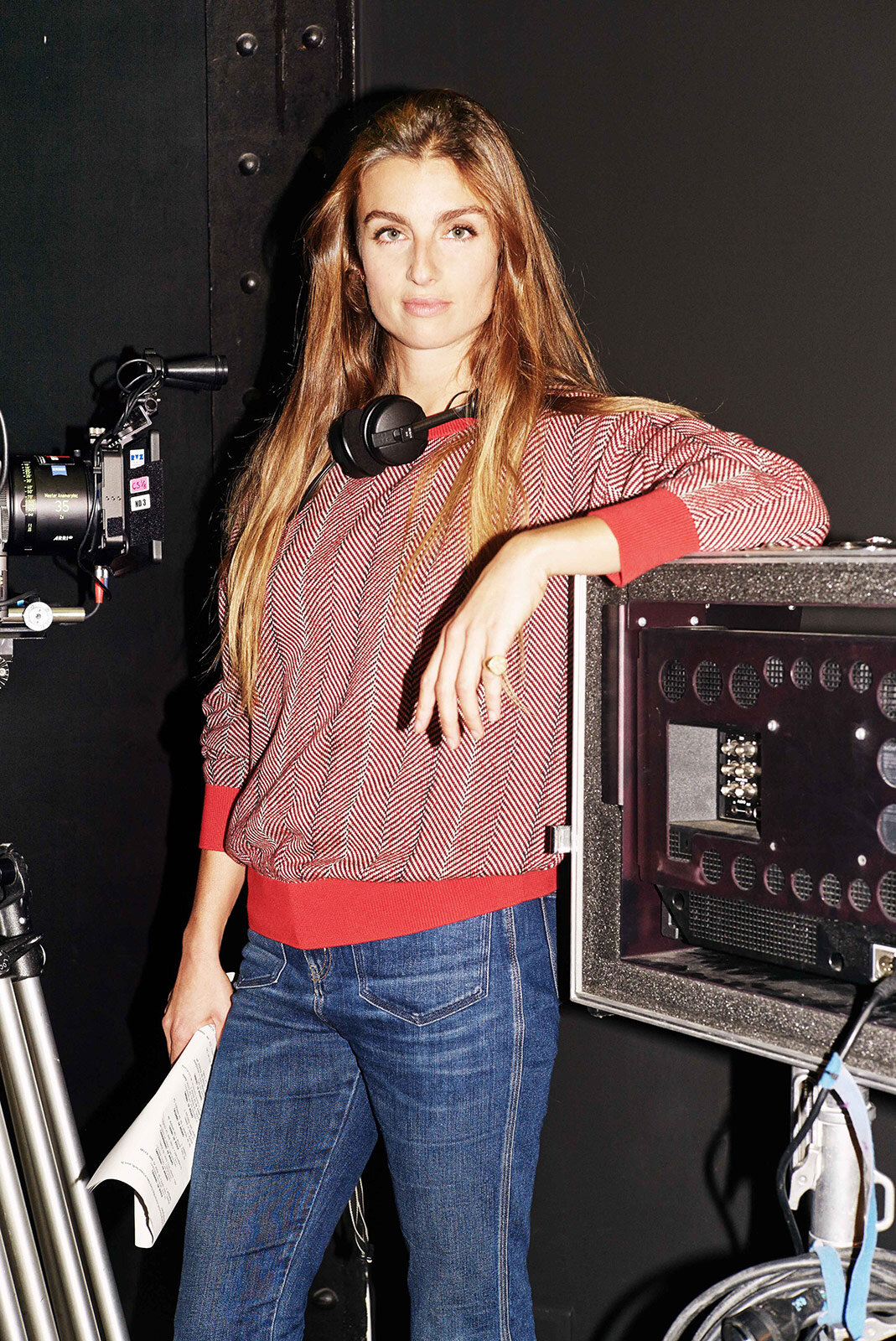Sonia Sieff: “When Women Want To Succeed They Must Fight Harder”
Interview with photographer, filmmaker, and screenwriter Sonia Sieff.
You've made short films, clips like the one for the cellist Camille Thomas, and you're working on a feature film right now...
Today, I'm working on three films: two feature films and a documentary about my father [Jeanloup Sieff]. That's what I like the most, directing! Lately, I've been a little off the map because the writing process is very long. Being naturally more of a sprinter, I had to work on myself to accept this slow pace. We're almost ready, and I hope that in 2021 I'll be shooting one of the two feature films.
One of the feature films is adapted from ‘Camera Obscura’, a short-movie I co-wrote and co-directed with Mary-Noelle Dana last year. It is the project closest to my heart, and has been inspired by what I've seen. It tells the story of a woman photographer who wields an uncomfortable power over a young feminist woman.
About Camille, she's a good friend. She's gracious, talented, and I like her energy. We were able to do a lot of experiments for this clip because a music video today can be a bit of an inspiration lab, there is a lot of freedom.
In your career, have you ever felt you were looked at differently because you were a woman?
Unfortunately, yes. Generally speaking, when women want to succeed they must have a firm grip, and regrettably, raise their voices more and fight harder. It is a world that is held by men. 50 years from now it may no longer be the case, but in the meantime there is work to be done. The fight is far from over.
In 2017, the New York-based publisher Rizzoli published your coffee-table book "Les Françaises". Why did you choose an American publisher and why did you name this book "Les Françaises"?
Rizzoli contacted me to make a book. At first I wanted to do a book about men, but they insisted on making it about women. From then on, I had carte blanche. I thought of all the women surrounding me in Paris, living in those charming neighborhoods, whom I had wanted to photograph for a long time. They're more Parisian than French. I imagine the title was a commercial desire from the publisher.
You said in an interview with GQ magazine that you might do another book about nude men.
I'm working on it, as a matter of fact...
You get inspiration from trips you take. What inspires you in the United States?
I love the American energy and spontaneity. It's a stimulating country, with the possibility, even if the American dream is less utopian today, of transforming one's life. I love this almost kamikaze-like optimism. Everyone in the United States is full of energy and optimism. A waiter is optimist because he thinks he's going to get a part in a Hollywood production. It's mostly the mind that makes things happen. You believe in it so much that it happens. At least, motivation makes life more enjoyable.
I've never had the American experience and that's one of the things I miss the most. I think in the U.S. you have to be here to consider a career. Americans need you to be here. I've always been in the U.S. occasionally. It will probably happen later.
Do you remember one of your very first projects?
At a very young age, I went to photograph descendants of Francisco Franco. Covering this story was particularly interesting. It was quite incredible how they felt disconnected from the legacy of their ancestor. One played cards all day long, one was more interested in spending his money in Venezuela, and the great-granddaughter seemed mostly interested in shopping.
I wondered how I was going to photograph this family. When I photograph someone I always need a story to understand how they make me feel. In this case I took them to the Valle de los Caídos [the war memorial] and I asked them to dress in black as a sign of mourning. They thought it was very funny...
If you had the girl you were at 16-17 (when you started) in front of you today, what would you say to her?
I'll tell her not to be so worried. I would tell her that the way to understand and find oneself, to know oneself, is the journey of a lifetime. That it goes through crises, moments of euphoria, sadness, questioning, changing course, it's never easy. It took a long time to get around to writing movies and directing them. It's a process that has to be accepted. That's what I would say to the girl in front of me, to be a little less worried, a little more confident and that things always end up changing.



